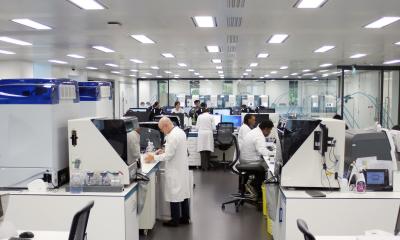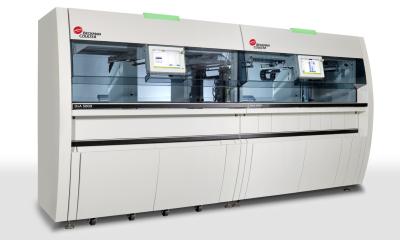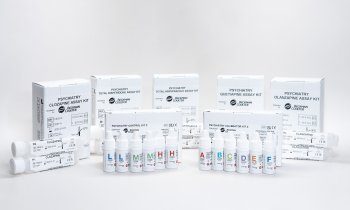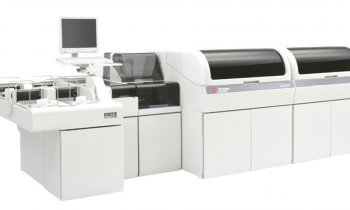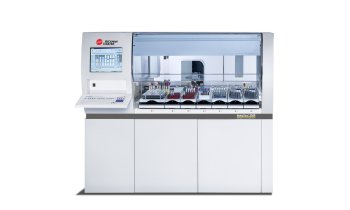Gold standard
Giant aims to inflate microbiology
At Europe’s largest meeting for clinical laboratories, Beckman Coulter stepped forward to welcome a new class of customers looking for familiar and reliable instruments.
Report: John Brosky
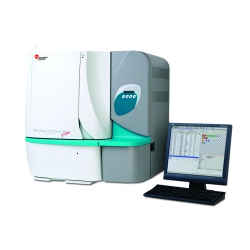
In January this year, Beckman Coulter acquired the entire microbiology business of Siemens, including the world-leading line of MicroScan analysers for microbial identification and antibiotic sensitivity testing (ID/AST). With an installed base of over 6,000 instruments worldwide the company enters this segment of clinical laboratories for the first time, yet already as the undisputed global leader.
At EuroMedLab in Paris, at the front and centre on the Beckman Coulter stand was the fourth generation MicroScan WalkAway plus system freshly dressed with the company’s logo, and backed by the same experts, including Senior Marketing Manager for the business unit in Europe, Philippe Arowas. ‘The MicroScan system is the key test for identifying and controlling, and potentially reducing the prescription of antibiotics, he told European Hospital.
The quantitative measures of a bacteria’s resistance with the analyser helps physicians to know which specific antibiotics they might use to treat a patient and, perhaps more importantly, which ones they should not use.
There are some 300 types of bacteria, with new ones appearing suddenly. He cites the example of the New Delhi Metallo (NDM) that showed up in 2008 and spread so quickly that a year later it was found in India, Pakistan, the UK, USA, Canada and Japan. NDM proved to be highly resistant to a broad range of antibiotics, including an entire family of drugs designed specifically for the treatment of antibiotic-resistant bacterial infections.
Capturing the results of MicroScan analysis with Beckman Coulter’s LabPro Information Manager and LabPro Connect helps clinical labs share data for epidemiology studies to identify trends in pathogen resistance and to track the spread of such infections better.
‘Patients can also share resistance to a bacteria as well as the bacterial infection itself,’ Arowas pointed out.
The patient samples to be tested might come from any infected part of the body, he said, whether it is an organ, skin, hair, or bone. After creating a culture, the MicroScan panel is inoculated by introducing the bacteria to the array of wells, each containing different concentrations of an antibiotic.
The technician can literally walk away from the instrument, returning after an overnight analysis that will show where the bacteria continued to flourish or where a specific concentration of antibiotic was effective in killing the pathogen.
Beckman Coulter takes over what Arowas estimates to be a 40% of the market share in the world for ID/AST. In some countries, such as Japan, the installed base accounts for 70% of the market, in Spain it is 60%, he said. The main competitor in this segment is bioMérieux, while Becton Dickinson holds a less significant footprint.
Testing for infectious disease is a steadily growing area in clinical laboratory, he said, and the former Siemens group now makes up a new core business for Beckman Coulter. ‘The company acquired these products because it intends to invest in the science and develop new products,’ Arowas added. ‘MicroScan is a first step, but we will see more and more product solutions developed for microbiology. Already we have seen how strong this interest is, though we just started in January.’
This combination, he suggested, means that Beckman Coulter is not only well-positioned to maintain its lead position in microbiology, but holds unique capabilities for advancing its portfolio of products.
04.09.2015



